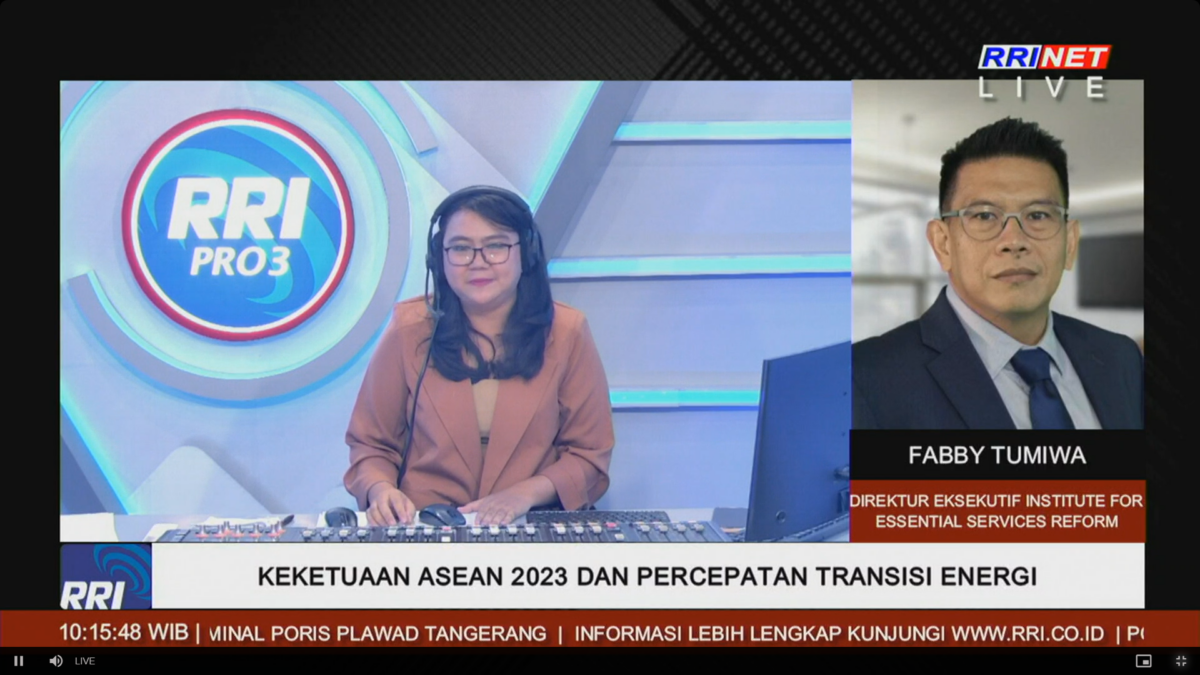Jakarta, 11 April 2023 – Indonesia’s leadership at the international level continues. After being considered successful in becoming the leader of the G20 countries in 2022, in 2023 Indonesia is entrusted with becoming the chairman of ASEAN. As a country with the largest population, economy and energy demand in the ASEAN region, Indonesia has an important role in various aspects of the development of the ASEAN region.
One of the priority issues discussed while Indonesia held the G20 presidency was the energy transition. One of the energy transition guidance documents produced is the Bali Compact which contains the basic principles of accelerating the energy transition which will serve as a guide and reference for the G20 countries in carrying out the energy transition.
Energy transition will be discussed again during Indonesia’s leadership in ASEAN. With this commitment, Indonesia must also accelerate its energy transition process. The success of Indonesia’s energy transition in carrying out energy transitions can affect the energy transition status in ASEAN, especially impression and acceptance from other countries related to energy transition issues.
In an interview for the Indonesia Menyapa program broadcast by RRI Pro 3, Executive Director of the Institute for Essential Services Reform, Fabby Tumiwa said that Indonesia has a number of policy instruments that can be used as principal for its commitment to energy transition.
“Indonesia is one of the countries in ASEAN that has a net zero emission target. In addition, the government also issued Presidential Decree 112/2022 which regulates the acceleration of the termination of coal-fired power plants,” said Fabby.
Even though it has a good record at the policy setting level, Fabby reminded that in terms of developing and adding the installed capacity of renewable energy, Indonesia is quite far behind other ASEAN countries such as Vietnam and the Philippines.
Fabby highlighted that one of the renewable energy projects that has been included in the 2021-2030 PLN RUPTL is also experiencing various obstacles.
“In PLN’s RUPTL, during 2021 – 2025 there should be an additional around 10.5 GW of renewable energy, but the implementation has not been smooth. Take it in the last 5 years, the addition of Indonesia’s renewable energy capacity is sluggish and we need to work hard to fix this,” said Fabby.
One of the reasons why Indonesia is not yet optimal in developing its energy transition is the notion that coal produces cheap electricity and renewable energy is expensive. This perspective was implied when the 35 GW program was launched which made fossil energy infrastructure more common in the electricity system in Indonesia. The availability of fossil energy infrastructure makes the government’s preference more inclined towards the use of fossil energy in planning to meet energy needs in Indonesia. This is increasingly supported by the policy of subsidizing a number of fossil energy commodities such as the DMO (Domestic Market Obligation) price of coal.
“The thing that needs to be considered from these choices is that encouraging the use of coal means closing the opportunity for renewable energy to grow and develop because it will continue to be considered expensive,” explained Fabby.
Fabby closed this interview with an appeal to the government and PLN to pursue the target of adding renewable energy capacity that had been planned in the RUPTL to become a game changer in boosting Indonesia’s influence in the Southeast Asian region.

